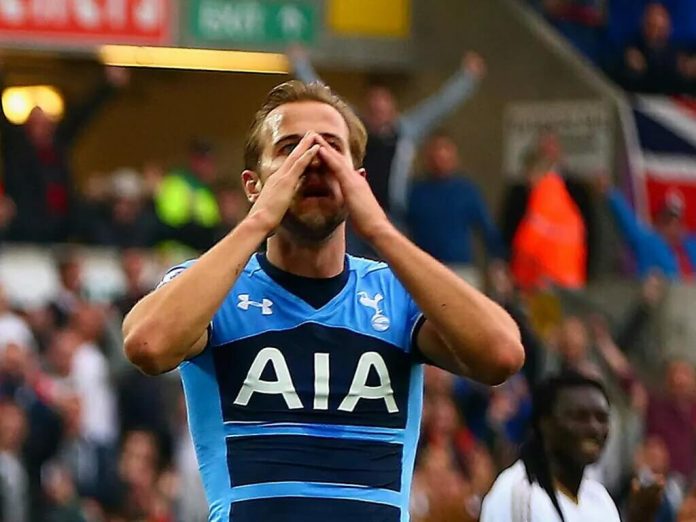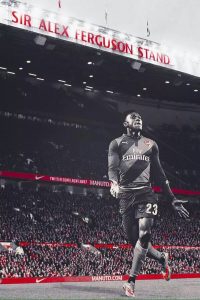Is there anybody that thinks the second season syndrome is a myth? I am not one of them. I don’t exactly think it is real either. I just feel it is one of those things in football. It just happens. It’s like a curse that can hit any player in the wake of an impressive first season. We have seen it happen so many times we have come to expect it. Every time a new player bursts on the scene or a new signing hits the ground running, an air of pessimism hits every fan. Can he do it on a cold, rainy night in Stoke…again, next season? Is he fluking his way through his first season? Many times, these thoughts prove to be more than just the quiet ramblings of paranoid fans.
We have seen entire teams go from ‘the surprise package’ in one season to ‘relegation candidates’ the next. It is especially common with newly-promoted teams. Remember Ipswich Town? Ah. Good times. Of course, players get hit too. Many times, they go hand in hand; a ‘surprise package team’ with a ‘surprise package player’. Just as they surprise everyone together, most of the time, the second season syndrome hits the player and the team in question.
So, why does it happen? How can it be avoided when it happens? Is it that an impressive first season translates to higher standards and expectations that become almost impossible to meet? Let’s look at the likely reasons why many players fail to live up to the standards set in their first seasons at their new clubs or as the new nexts/wunderkinds.
Opponents Know What To Expect
After an impressive first season, the spotlight is on the player who delivered it. Articles are rolled out in their numbers and the fans sing the praises of their new star. While all these are going on, opposition players and managers silently take notice. In preparing for the coming season, they pinpoint the impressive players from the previous season and try to figure out their weaknesses and how best to neutralise the threat they possess. A previously impressive player who doesn’t prepare well for the barrage and/or baptism of fire to come becomes at risk of the second season syndrome. He is no longer the surprise package. The opponents now recognise that he is a threat to their ambitions and will most likely give him special attention. They will come with their plans to neutralise him, and if he fails to handle it effectively, the second season syndrome could be knocking.
A Bad/Shaky Start
All through the summer following a player’s impressive first season, the player starts to hear whispers about the second season syndrome. The media talk is about whether he is for real or just another one season wonder. The fans ask the same question and rival fans predict doom and gloom. The noise gets a bit too much and at some point, the player takes notice. Even if he refuses to admit it, all the talk surely has an effect on his psyche. He could become nervous about the coming season and consequently, eager to hit the ground running again to silence the noise; perhaps too eager.
A bad run in the first few games could start to eat away at the confidence of the player. He gets more eager to impress. At this point, the whispers get louder and louder and as the games roll by without any meaningful impact from the player, another media narrative begins. This could seriously affect the player especially if he is still too young to handle it effectively or if he doesn’t have the mentality for the challenge. At some point, the second season syndrome could hit him and it could all go downhill from there. I do believe that this is mainly what Harry Kane is currently facing and he is seriously at risk of the second season syndrome. He needs those goal attempts to start going in, now.
The Pressure That Comes With Higher Standards And Expectations
A first season that is too impressive could be a blessing and a curse to a player. On the one hand, he is heralded and gets a lot of hype and good publicity. He could even get a better contract off it especially if he starts to attract interest. On the other hand however, the bar is raised. The 15 goals he scored last season can no longer cut it. The fans and the media expect him to double it this year since he now understands the league better or for any other reason they can come up with. He is expected to build on his success the previous season, repeat it and surpass it. The 10 assists from the previous season are no longer good enough. If he could get that many in his first season, why can’t he get 20 assists in his second? How hard can it be to better those numbers? The 12 clean sheets from the previous season are no longer good enough; been there, done that. Is it too much to ask if he is responsible for 18 this time around?
Players sometimes find this very hard to handle. The pressure is so much and the fans expect the player to live up to the hype that they, in conjunction with the media, created. It is especially tough for young players who are still growing. The fans become impatient, the media search for new sensationalist articles to write with click-bait titles for them and the player is overwhelmed. Words like ‘fluke’ and ‘fraud’ are bandied about and the player suffers for it. Whatever was left in his confidence tank could be gone in a flash and he may never reach his potential after that.
New Manager/New System/New Teammates
A summer spending spree by his club after an impressive first season can affect a player. He has to adapt to new teammates again and he might not be able to pull it off a second time. He might not be able to connect well on the field with the new guys and it can affect his form. The kind of summer business done by Liverpool post-Suarez and Tottenham post-Bale is an example of this. When square pegs are brought in to fit round holes, the players on ground might also be affected and start to feel the pressure just like the new signings.
In the case of a new manager at his club a player might be made to adapt to a totally different system. He might not be effective in the new system that came with the new manager and this can seriously affect his form and performances.
A new system being employed by the same manager from the previous season could also be just as bad especially if said manager is trying to incorporate a new signing or two. The player, now in his second season, could find it hard to adapt and start looking lost on the field.
One Season Wonder
Everything considered, it must not be forgotten that sometimes the player really is the problem. He just might be a one season wonder after all. He probably capitalised on being unknown and used his unpredictability to good effect. By the time the unpredictability disappears with his first season, he gets found out. He gets exposed as a not-so-good player and his great day in the sun is over. One season wonders are common but in identifying them, people sometimes hastily term genuinely talented players OSWs and before long those players start to play like they are. Before long, the tag sticks and they become like the rest.
How Can These Be Avoided/Fixed?
So how can a player handle all these and avoid falling victim to the second season syndrome? In my opinion, footballers should always try to reinvent themselves. Dynamism is something that opponents can never properly prepare for or have a strategy against. It is not always sensible to expect that a certain style will consistently remain as potent as in other seasons. Someone will surely figure you out at some point or at least contain you. If a player refuses to evolve with every season or to find alternate ways of getting the job done in the event of being faced with tough opponents, he could well go from surprise package to fluke in less than one year.
In conclusion, it is my belief that every great player in history found a way to keep being a thorn in the side of his opponents with very few off days whether through constant reinvention, experimenting and evolution, all of which are related one way or the other to dynamism. These are the ingredients that can keep a player at the top more than most other things. The manager also matters; how he handles the different stages of the player’s career at the club. In spite of all this, a talented player should figure out how and when to step up, irrespective of the pressure, media, hype and circumstances. He should figure out how to recover if he ever gets hit by the second season syndrome. Great players find a way to get the job done, period.
By Astorre S. Cerebronè
Twitter – @Cerebrone














